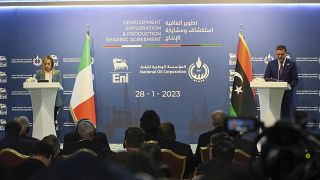United nations
Speaking in New York Wednesday, the UN Secretary-General Antonio Guterres urged governments to mitigate the effects of a threefold crisis of access to food, energy and finance that is crushing the most vulnerable.
The crisis fueled by the war in Ukraine and what the United Nations chief called "grotesque greed" by energy companies has sent energy bills through the roof.
"It is immoral for oil and gas companies to be making record profits from this energy crisis on the backs of the poorest people and communities and at a massive cost to the climate. The combined profits of the largest energy companies in the first quarter of this year are close to $100 billion. I urge all goverments to tax these excessive profits and use the funds to support the most vulnerablepeople trought these difficult times", Guterres said.
If the crisis affects everyone; not all nations are in the same boat. On the continent for example some goverments chose to subsidises high costs when have so far avoided to do so.
Shell's second-quarter adjusted earnings rose to $11.47 billion when BP profited highest in 14 years with underlying profits hitting $8.45bn for second-quarter of 2022 results.
"The war in Ukraine continues to have a devastating impact on the people of that country. But the war is also having a huge and multi-dimensional impact far beyond Ukraine, through a threefold crisis of access to food, energy and finance. Household budgets everywhere are feeling the pinch from high food, transport and energy prices, fueled by climate breakdown and war", Guterres added.













Go to video
Africa off track on maternal mortality targets, UN warns on world health day 2025
Go to video
UN intensifies patrols at displacement camps amid rising violence in South Sudan
00:29
UN details 137 percent increase in aid workers deaths
Go to video
UN Secretary General warns of 'dire situation' in South Sudan
02:27
South Africa faces severe power cuts
02:31
UN chief warns DRC conflict risks escalating into a regional war